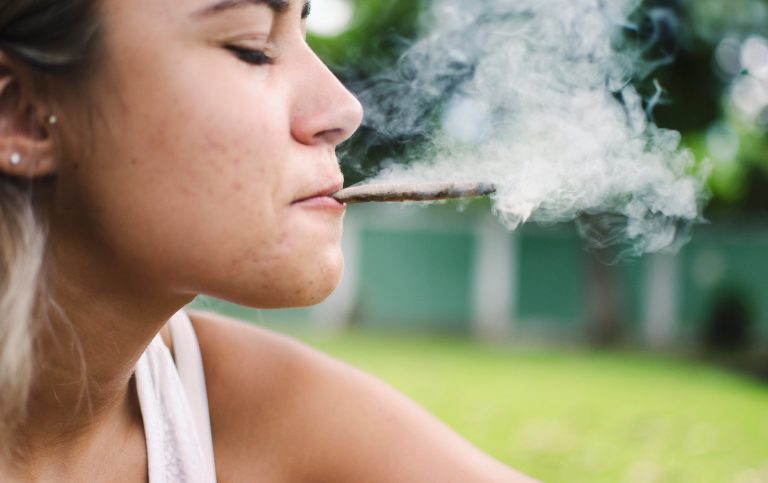
Marijuana is widely popular in the medical patient community and places where recreational use is decriminalized. Medicinally, it helps make pain, nausea, and other health symptoms manageable, improves moods, and inspires positive outcomes. However, just like every other medical treatment, there are risks to consider about smoking marijuana, especially concerning lung health.
Cannabis products come in many forms for medicinal and therapeutic use, including oils, tinctures, ointments, creams, and other forms. Yet, smoking remains a popular consumption method for marijuana enthusiasts. Many of the risks associated with smoking pale in comparison to the experience and health effects gained from the use of marijuana.
Marijuana use is widely associated with smoking, a practice that can significantly impact lung health. However, misconceptions persist about the dangers of cannabis being directly attributed to the plant rather than the method of consumption. Despite historical evidence highlighting the negative consequences of inhaling marijuana smoke, modern research indicates the immediate and long-term effects of cannabis use are less harmful to lung and overall body health than previously thought.
Smoking cannabis involves using materials or apparatuses that give off smoke that irritates the lungs and cause inflammation. Smoke contains tar, carcinogens, irritants, and other toxins that are harmful and can potentially cause lung damage. Over time, the cumulative effects of smoking increase the risk of respiratory distress, lung disease, and lung cancer. These substances accumulate in the lungs and damage healthy lung tissue. The harmful effects of cannabis on lung health increase when mixed with smoking tobacco.
Many people combine their weed or cannabis with tobacco for flavor and experience considerations but are unaware of the risks. Evidence shows a correlation between lung health and marijuana; much of it is more beneficial than harmful when considering the anti-inflammatory and antitumor molecular activity of THC and CBD, two of the most known cannabis cannabinoids in the world. Clinical research in animals and humans indicates that marijuana has anti-cancer properties that prevent or counteract many of the long-term and harmful effects associated with the act of smoking.

Smoking marijuana is reportedly less harmful than tobacco or nicotine despite many similarities. The following key distinctions highlight the correlation between smoking marijuana and lung health risks.
Marijuana lung health risks are lower when combustion does not occur. Paper joints and bongs are not the only ways to smoke cannabis. Marijuana can be heated to specific temperatures to transform its properties into an inhalable mist. Combustion is not necessary. Vape pens and tanks are among the most commonly used marijuana vaporizers, though larger countertop-size devices are also popular. Despite vaporizing being a lower-risk alternative, many cannabis enthusiasts prefer to use more conventional materials, such as bongs, paper wraps, and pipes.
Smoking cannabis does not impair lung function as much as cigarettes. A USF-led study on the effects of smoking marijuana and tobacco on pulmonary lung function shows that tobacco compromises both lung airflow and volume. This effect was not noticed in study participants who smoked marijuana; instead, the opposite occurred. Study results indicate that cannabis smokers have higher lung function and airflow than tobacco users.
Marijuana itself is less toxic than nicotine, tar, and tobacco products. This is due to several reasons, primarily because cannabis is full of heat-activated substances, known as cannabinoids and terpenes with medicinal and therapeutic properties. Toxin exposure is higher when paper and other flammable smoking materials are burned with cannabis.
Marijuana smoke dries and irritates the linings of the airways. Prolonged exposure induces coughing, and increases mucus production, wheezing, etc. People who smoke cannabis reportedly have higher tar residue on their lung tissue from increased exposure to higher amounts of potentially toxic substances, such as benzanthracene, benzoprene, and phenols¹, than cigarette smoke due to differences in breathing and inhalation practices. Marijuana smokers tend to breathe more deeply when smoking than nicotine smokers, which increases the amount of smoke-based toxins² exposed to the lungs.
The effects of marijuana last longer than nicotine and tobacco. Nicotine has a short half-life, so its effects wear off quickly. Cigarette smokers tend to require more frequent smoke sessions than marijuana smokers. Cannabis effects tend to last longer; speculations about why include differing inhalation practices and times. This also suggests that people who smoke marijuana require fewer smoke sessions.
On a cellular level, smoke impairs the immune system, which also affects respiratory and lung health. When weakened, the immune system becomes dysfunctional and unable to ward off infections and disease. This makes marijuana smoke more potentially dangerous for those with chronic health ailments and autoimmune disorders.
The respiratory airways are the body’s first line of defense against airborne pathogens, diseases, and environmental contaminants, such as household dust, pollen, pet dander, and mold. When irritated or inflamed by smoke, mucus production increases while cellular immunity function decreases. This reportedly increases the risk of respiratory infections and lung cancer.
Marijuana smoke’s harmful effects on lung health are also dependent on product quality. Cannabis must be cultivated properly to minimize health risks associated with contaminants. Mold is common when poor cultivation techniques are used. Despite evidence highlighting the dangers of mold exposure, some people remain unaware that smoking moldy weed introduces mold spores in addition to the toxins associated with cigarette smoke to the lungs and can create health problems in those with weakened immune systems.
Many clinical studies highlight the long-term effects of marijuana smoke on the lungs. There are many more with inclusive results, suggesting that marijuana’s direct effects on lung health are primarily influenced by consumption. Smoking is a mechanism that introduces marijuana and carcinogenic combustion products into the lungs.

Vaping is quickly becoming the more modern and socially acceptable administration method for marijuana. Research shows that vaping is considerably one of the safer ways to consume cannabis. Despite being a relatively new trend, vaping marijuana preserves more cannabinoids and terpenes³ and is more potent than alternative cannabis consumption methods. Vaping also contains considerably lower amounts of hazardous substances with fewer risks to smokers, the public, and the environment.
Cannabis is available in different forms. Potency, treatment efficacy, and duration are all influenced by consumption type. Certain marijuana products have longer onset and duration times than others. Smoking cannabis may come with risks, but there are alternative administration measures to consider.
Marijuana can be converted into sublingual, oral, and edible products safe for ingestion. Sublingual cannabis is made with food-grade extracts. Only a small amount is necessary and doses are placed under the tongue for rapid absorption through the deep lingual arteries. Sublingual administration is more potent than smoking, and provides faster relief than edibles, topicals, and pills.
Marijuana can also be integrated into cookies, candies, meals, and beverages for consumption. Edible cannabis products take longer to work because they must process through the liver before entering the bloodstream. Ingesting marijuana also increases the physical effects or potency, which some people may find unpleasant.
Topical administration involves applying cannabis-infused ointments, creams, and salves to the skin to help calm inflammation and other physical symptoms. There are also cannabis and CBD transdermal patches to help patients manage their medical cannabis treatments discreetly.
Research continues to uncover more information on lung health and marijuana risks. Anyone considering smoking cannabis for medicinal or recreational purposes should consult with a medical marijuana doctor to learn individual risks and administration, strain, and dosing recommendations.
No Information on MarijuanaDoctors.Com should be used to diagnose, treat, prevent or cure any disease or condition. You can view our Full Disclaimer here.